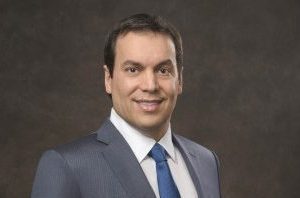Former Top CBS Exec Joseph Ianniello Denies Unjust Enrichment Claim In Shareholder Lawsuit

Joseph Ianniello, the former acting CBS CEO, denied claims of unjust enrichment and other allegations in a shareholder lawsuit contesting the 2019 merger of Viacom and CBS.
The suit in Delaware Chancery Court largely targets majority owner Shari Redstone for allegedly stacking the Viacom board with allies and jamming the deal through against the best interests of CBS shareholders. Ianniello, who left shortly after the merger closed, walked away with a $125 million package – the result of several revisions of his compensation and severance agreements that the suit alleges were aimed at garnering his support for a deal it claims he initially opposed. The payout put him among media’s most highly compensated executives for 2019.
“There was no rational business justification or purpose for increasing the financial benefits that would be paid to Ianniello when the CBS Board, management and controllers all knew, even before the Merger talks restarted, that Ianniello would not be named permanent CEO and thus would become entitled to the substantial golden parachute he stood to receive in that event,” the complaint said.
Ianniello became acting CEO of CBS after Les Moonves was ousted on sexual abuse allegations. Viacom CEO Bob Bakish was named chief executive of the combined ViacomCBS. Shari Redstone is board chair.
Judge Joseph Slights had ruled in February that shareholders could pursue their claims, saying doubts about the fairness of the merger process are reasonable given Shari Redstone’s influence and ownership of both Viacom and CBS through the family’s holding company National Amusements (NAI). ViacomCBS and Ianniello had asked for the suit to be dismissed.
A redacted response to the suit by former interim CBS chairman, entertainment executive Strauss Zelnick, was also filed today.
Judge Slights has also allowed Viacom shareholders to pursue a similar suit.
In a redacted March 24 filing, Ianniello said his actions in approving the merger were taken in good faith at the direction of the CBS special committee. He said the unjust enrichment “is barred, in whole or in part, because Ianniello’s relationships with CBS and ViacomCBS were governed by contract.”
“Ianniello did not breach any fiduciary duty and Ianniello at all times acted reasonably, properly, in good faith, with reasonable care, and in accordance with CBS’s Certificate and Bylaws and applicable law,” his defense said. The list of 14 defenses followed his responses to each claim paragraph by paragraph in the 150-plus page suit where he denied all allegations except factual details like board appointments, contracts or public announcements.
“The merger was negotiated, recommended, voted on, and approved by an independent, disinterested special committee of which Ianniello was not a member,” he said.
“Plaintiffs have not suffered any damage, loss, or injury directly or proximately caused by Ianniello.”
And, “The conduct of persons and/or entities other than Ianniello was a superseding or intervening cause of any damage, loss, or injury allegedly sustained by Plaintiffs or the purported class members,” he adds.
He also said the “the Merger was entirely fair and/or resulted in a fair price” — which is the suing shareholders’ major issue. They argue that CBS at the time was the stronger company and Redstone forced the deal through to protect the value of her holdings in both companies at the expense of CBS shareholders.
Viacom and CBS merged in December of 2019 after several attempts and years of corporate infighting against the backdrop of a downward health spiral of patriarch Sumner Redstone and shifting power dynamics between Viacom and CBS after Moonves was forced to resign.
For publicly-traded U.S. companies incorporated in Delaware – many, if not most, of them – the Court of Chancery rules on corporate law disputes without juries.
In a buzzy 2005 case, shareholders sued then Walt Disney CEO Michael Eisner and the company’s board for paying former COO Michael Ovitz $140 million in severance when he left Disney after just 14 months. The judge upheld Ovitz’ employment agreement as not in bad faith but chided the board for not following best practices of corporate governance.
Read More About:
Source: Read Full Article
